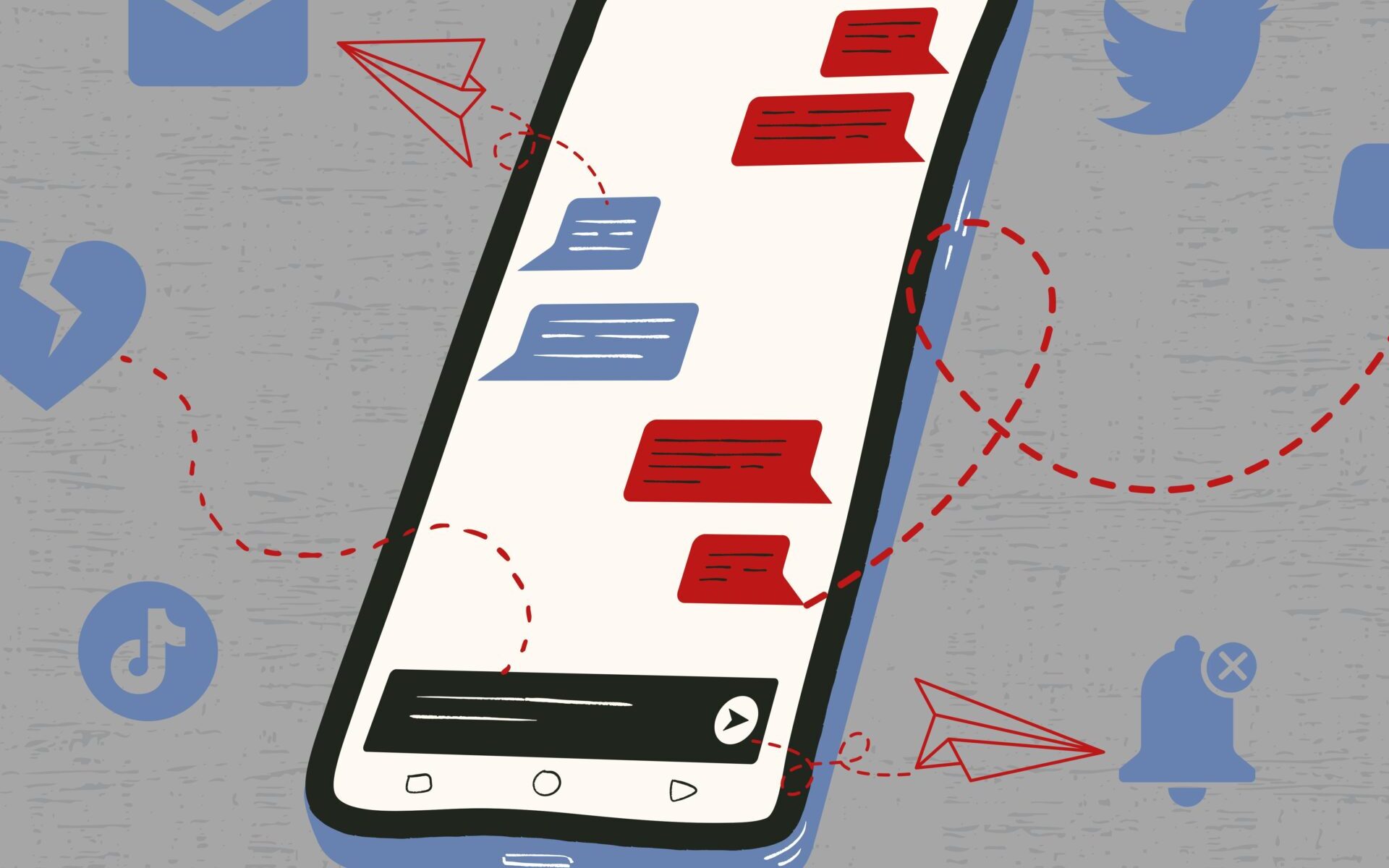
It came as absolutely no surprise that the Kardashian family is once again making headlines. This time, Ye (also known as Kanye West) publicly called out his ex-wife, Kim Kardashian, for allowing their daughter, North, to post on the social media app TikTok without his permission.
Disclaimer: I don’t know anything about parenting outside of being on the receiving end of some for the past 21 years.
But I do know about growing up with the internet. When two 12-year-old girls stabbed their friend in Waukesha, Wisconsin, just 35 minutes from my hometown, over the fictional internet character Slender Man, I was also a middle school girl who would stay up late with my friends at sleepovers and play the Slender Man computer game to scare ourselves.
That was the first time in my childhood the repercussions of the internet felt visceral, scary and closely connected to my personal life – but it certainly wasn’t the last.
While it does seem that Kardashian is taking some of the suggested precautions about having her daughter on social media, like running her account and turning off the comments, the tools to protect children on the internet are not great, especially on social media.
A lot of online advice gives reasonable tips to parents about internet usage, including creating a strong Wi-Fi password, understanding privacy settings and verifying the age-appropriateness of apps.
The government also took some responsibility, issuing acts like the Children’s Online Privacy Protection Act that is designed to prevent children under 13 from sharing personal information online without parental approval. Some members of Congress have called for this act to be amended to include protections for 14- and 15-year-olds.
But there are still key online players that fall short in protecting children that use their platforms: social media companies.
A 2020 report from Thorn revealed that 45% of kids under the age of 13 already use Facebook (now Meta) daily, and 40% of children in that age group use Instagram. Of children surveyed ages 9-12, 46% of girls and 48% of boys have had a potentially harmful online experience, including online bullying or persuading children to create child sexual abuse material.
Beyond that, Facebook has also been involved in scandals involving harvesting and selling people’s data.
Instagram, a Facebook-owned app, introduced some safety measures for young teenagers following pressure from parents. These new features now automatically make the younger teen’s accounts private and ban certain adults from interacting with their accounts.
While this is a step in the right direction, it doesn’t address the fact that many children simply lie about their birthdays when signing up for an account. This age-old trick has been around long enough to explain why some of my classmate’s Facebook ages are as old as 30.
Facebook is trying to incorporate the use of artificial intelligence to verify a user’s age, but its own engineers doubt the efficacy of this solution.
So, how is this major tech giant able to extract massive amounts of information from its users but not prevent children from using its app?
To me, the answer is clear: they just don’t want to. Facebook has made money off of children in the past, and so has TikTok.
The internet is a scary place for kids, and if big tech isn’t going to be incentivized to change by dollars, maybe it will be persuaded by policy.
Because if kids are going to be using the internet and social media regardless of age restrictions, it’s time to make sure that there are ways that they can stay safe.
Angeline Terry can be reached at Terr2351@stthomas.edu.

